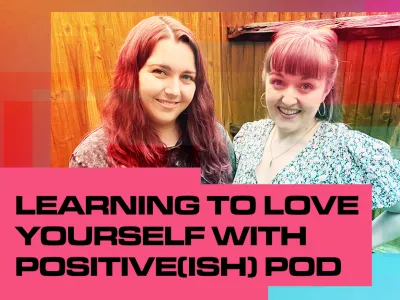
How I Turned My Insecurity Into Self Love
Include this article in your Skills Builder Journal. It could help you develop... 

Do you know where your insecurities stem from? Do you have methods to remind yourself how great you are? Imogen explores the topic and gives her advice on shutting off social sabotage and celebrating self love...
My journey to self-love began after I realised that I had developed insecurities about my body and was spending way too much time focusing on how I looked. This was when I was about 14, and it wasn’t a coincidence that I first started using social media at this time too. During the four years since, I have managed to put a lot less importance on how I look, and when I do think about my appearance I think of myself in a much more positive way.

Self-love is an ongoing journey, and while ways to overcome insecurity can develop, so do the same things and types of media which allow self-doubt and comparison to happen. However, once you realise that you are worthy of confidence and self-love, it is a lot harder to develop new insecurities, and the journey to self confidence gets easier each day.
Here are some of the things that have helped me:
Firstly, cut yourself some slack and realise that some things are designed to make you feel insecure. Just look at marketing and adverts for things in the beauty, fashion, and fitness industries. I quickly realised that the only reason I wanted clear skin was because I had seen countless adverts for products which claimed to help me achieve it. The best way to quickly find out the root of your insecurities is to ask the question, ‘who benefits from me feeling like this?’.
Another cause of insecurity for me was gender norms. I am a woman but I rarely feel comfortable in clothes like dresses or skirts. Going against gender norms can be equally uncomfortable, and this was harder to overcome, but for me, the knowledge that I was helping to deconstruct the very thing that made me insecure was enough to allow me to dress how I want.

When you are aware of where your insecurities come from, it becomes easier to notice when you start to develop one, and you can stop it before it contributes to any feelings of self-doubt. For example, a few days ago I started feeling self conscious about wearing glasses, despite having worn them for the last few years. It didn’t take me long to realise that a couple of days before, I had a long conversation with my optician about the possibility of laser eye surgery. The cause of your insecurities may not always be this obvious but once you start seeing the links, it becomes a lot easier to get over the insecurity before it gets worse.
One of the best ways to develop self-love is to explore different methods of achieving it until you find one that works for you. Body positivity and body neutrality are two movements that have been created to help improve the way people feel about their bodies. They both have the same goal of everyone feeling positively about themselves, but they work towards that goal in very different ways.
Body positivity advocates that everyone is beautiful, regardless of their appearance or body type. Although this is true, and everyone deserves to feel like they are beautiful, there are other ways to look at your body which offer a different perspective. The most helpful one for me is body neutrality. Instead of allowing beauty to signify value, body neutrality states that your body has value because it keeps you alive, and that is it’s only role. This stops beauty being seen as a requirement, liberating you from constantly thinking about yourself through the lens of appearance. After realising that your body is not obligated to be beautiful, insecurity turns to gratitude. The importance of appearance will begin to shrink until it disappears completely, and you will be left with a rich feeling of thankfulness and positivity.
Despite its name, body neutrality does not mean that you feel neutral about your body. It means that you develop a more neutral feeling towards your outward appearance, which in turn leads to a better relationship with yourself. It means you don’t link your value as a person to your looks.
As Joantha Kottler says in her essay Fat in Every Language, “I cannot define my own value by the amount of space I take up at a given moment. I cannot speak to myself in that language anymore”.
Body neutrality allows me to change how I speak to myself. I am kinder to my body and recognise that it is so much more than what it looks like on the exterior. It allows me to do the things which bring me joy, it allows me to enjoy time with my friends and family, and it allows me to try and share this feeling of gratefulness with others.




